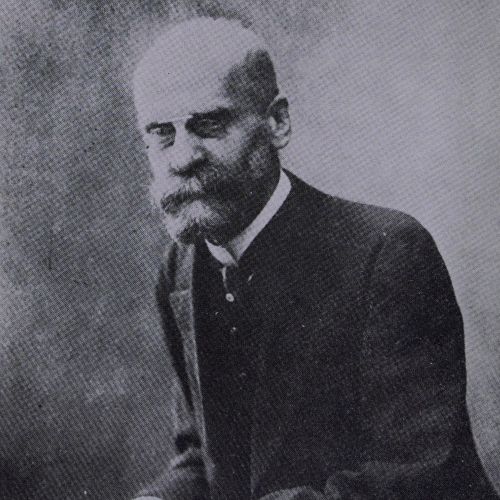Emile Durkheim
Introduction
Émile Durkheim (1858–1917) stands as one of the foundational figures in the field of sociology. A pioneering French thinker, Durkheim helped transform sociology from a speculative philosophy into a rigorous, evidence-based discipline. He was especially known for his work on the role of religion, social institutions, and collective values in shaping societies. His legacy endures not only in academic texts but also in the frameworks that scholars use to interpret culture, belief, and social behavior today.
Area of Expertise
Durkheim’s academic journey revolved around understanding how society holds itself together amid the complexity of modern life. One of his central areas of expertise was the sociology of religion, where he examined how beliefs, myths, and rituals serve more than spiritual functions—they act as the glue that binds communities. For Durkheim, religion was not about divine truth but about expressing the collective spirit of a society.
Another significant focus of his was social facts—the norms, laws, and customs that influence individual actions from outside. These social facts, according to him, operate with the force of external constraints, shaping behavior whether individuals are conscious of them or not. By dissecting these structures, Durkheim sought to understand the mechanisms that produce order, unity, and continuity within societies.
Books & Publications
Durkheim’s ideas were crystallized in a series of groundbreaking publications that remain cornerstones of sociological education today:
-
The Division of Labour in Society (1893) introduced the concept that social cohesion evolves as societies transition from homogeneity to specialization.
-
The Rules of Sociological Method (1895) laid out Durkheim’s vision for how sociology should be conducted—with objectivity and a scientific mindset.
-
Suicide (1897) broke new ground by using statistical analysis to link suicide rates with varying levels of social integration and regulation—an early example of applying empirical methods to social issues.
-
The Elementary Forms of the Religious Life (1912) offered deep insight into primitive religious practices, especially totemism among Australian Aboriginal tribes, showing how early religious beliefs reflected and reinforced group life.
-
His collaborative work Primitive Classification (1903), co-authored with Marcel Mauss, examined how mythic and symbolic classification systems reflect the structure of society.
These texts not only explored different facets of social life but also reflected his consistent pursuit of uncovering how collective life shapes human thought and action.
Research & Contributions
Durkheim’s contributions were both theoretical and methodological. Perhaps most influential was his argument that religion and mythology are not divine in origin but social in function. He introduced the idea of collective representations—symbols, myths, and rituals shared by a group that reflect collective beliefs and influence individual consciousness.
Another core idea was the distinction between the sacred and the profane. He argued that societies draw moral boundaries by designating certain things as sacred—objects or concepts surrounded by awe and reverence—and others as profane or everyday. This separation helps maintain moral order and social coherence.
The term collective effervescence, coined by Durkheim, captures the emotional intensity people experience during shared rituals. He believed this shared emotional energy reinforced social bonds and strengthened group identity.
In broader sociological terms, he also introduced the notion of anomie, a condition of normlessness that can arise during rapid social change, leading to disorientation and even despair. This concept has proven crucial in understanding how societies manage crises and transitions.
Durkheim’s empirical approach, often combining ethnography, comparative analysis, and early statistical techniques, distinguished him from his contemporaries and helped establish sociology as a science in its own right.
Awards & Recognitions
Although the academic culture of his time didn’t revolve around awards as it does today, Durkheim achieved several important milestones. He became the first chair of sociology at the Sorbonne, institutionalizing sociology as a respected academic field in France. His founding of L’Année Sociologique in 1896 created a platform that nurtured a generation of sociologists and anthropologists.
Durkheim’s influence extended across disciplines, impacting thinkers like Marcel Mauss, his nephew and collaborator, as well as Talcott Parsons, who integrated Durkheimian ideas into American structural functionalism. His work also paved the way for later critiques and evolutions by scholars such as Michel Foucault, who engaged deeply with the concept of social structures and power.
Social Media Profiles
Naturally, Émile Durkheim lived long before the age of digital communication, but his intellectual footprint is everywhere online. Numerous academic platforms, forums, and social media accounts share his ideas and apply his theories to modern issues. On Twitter, for instance, you’ll find accounts quoting Durkheim’s key insights on collective behavior and religion, while sociology subreddits often debate his relevance to today’s social dynamics.
Educational YouTube channels and podcasts frequently cite Durkheim when exploring topics like religious symbolism, suicide trends, or social cohesion. His work is also featured in online university courses and open-access journals, ensuring that his influence remains active in digital spaces dedicated to sociological inquiry.
Bibliographic Sources
Durkheim, É. (2002). Sociology of knowledge and religion themes. In Internet Encyclopedia of Philosophy. https://iep.utm.edu/emile-durkheim/
Britannica, T. Editors of Encyclopaedia. (2025). Émile Durkheim. In Encyclopedia Britannica. https://www.britannica.com/biography/Emile-Durkheim
Mediatheory.net. (2023). Emile Durkheim: Illuminating the dynamics of media & society. https://mediatheory.net/emile-durkheim/
Stanford Encyclopedia of Philosophy. (2023). Émile Durkheim. https://iep.utm.edu/emile-durkheim/




